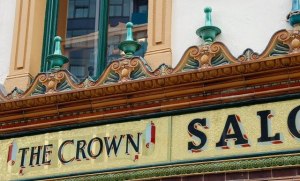 Medically, there are plenty of reasons to suppose that alcohol harms the human body and produces damaging behaviours. However, I’ve come across a couple of pieces of research in recent weeks that might help remind us that drinking can also be related to social capital, which in turn has some benefits.
Medically, there are plenty of reasons to suppose that alcohol harms the human body and produces damaging behaviours. However, I’ve come across a couple of pieces of research in recent weeks that might help remind us that drinking can also be related to social capital, which in turn has some benefits.
These positive effects of alcohol first came to my attention when I was writing the second edition of my textbook on social capital. A friend sent me a copy of a paper – available online – that found higher earnings among social drinkers than among either non-drinkers or solitary drinkers. This finding was based on analyses of the US General Social Survey, controlling for other factors such as full-time/part-time work and qualifications; interestingly, the study showed some differences between the effects of drinking for the two genders. Overall, the authors suggested that this gain arose because social drinkers formed networks that then gave them access to knowledge of opportunities that were denied to non-drinkers or solitary drinkers.
This seemed to me interesting enough to look at this literature again, for a third edition of the text. I found some refinements to the analysis of drink and earnings, with one particularly persuasive study of US panel data showing that both abstinence and heavy drinking were associated with lower lifetime incomes than those enjoyed by light/moderate drinkers.

The Crown Liquor Saloon, Belfast. Image copyrighted by Albert Bridge, licensed for reuse under the Creative Commons
I also came across some qualitative research on health and drinking among men. This study drew on group interviews with middle aged men in Scotland. The authors found that while beer drinking in a pub was very much part of masculine culture, it also helped men to define ‘some non-hegemonic behaviours as forgiveable – and indeed acceptable’. This included open discussions of emotions and mental health issues while drinking beer together, so that while the men might engage in damaging behaviour – excessive drinking – they also provided social support that could improve health outcomes.
Finally, there are studies of the influence of social capital on drinking levels. These tend to show that those with higher levels of social capital are less likely to indulge in binge drinking. It is, though, difficult to know what weight we can place on these studies. They tend to be based on samples of university students, who might well be untypical of the wider population. And they tend to measure social capital in terms of the time spent volunteering, which of course may include activities undertaken on behalf of a faith organisation that disapproves of or forbids alcohol. So I am not really persuaded that these studies are of wider significance.
But one study, based on English survey data, and using a wider range of social capital indicators, found that those who lacked social support tended not to drink at all, while civic participation at individual level and social capital community level were both associated with moderate alcohol consumption. Note that this was an association – with cross-sectional surveys, it is hard to draw any conclusions about causality. Again, I’m not inclined to rush to generalise, but these findings seem on the face of it to be compatible with those showing that moderate drinking can have some beneficial effects.
In practical terms, I am faced with two decisions. Fascinating though this is – and reassuring for me as a sociable drinker – I have to decide whether it really merits inclusion in a textbook. And when it is published, where should I take my partner to celebrate?
